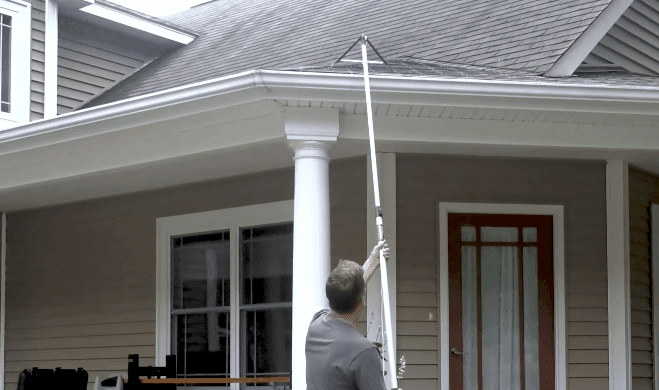- Gaps
You shouldn’t have a lot of gaps in your gutters. If they do, remove them and replace them right away.
- Rust
The excessive rains may cause some gutters to corrode. The gutters might continue to function for a while, but it is advisable to install new portions before the rusty metal fractures and shatters.
- Cracks or fractures
Water will leak out of your gutters and onto your house or fascia if there is a noticeable cut in them. The facade of your property won’t be protected from any further precipitation. Additionally, minor cracks will enlarge into major fractures, leading to future drainage system issues that are far worse, see more here about these cracks and fractures.
- Soil erosion
Your yard or garden’s soil may have become “thinner,” or less dense, as a result of too much precipitation. Ineffective gutters allow water to spill into your yard, bringing filth with it. In addition to harming your grass, soil erosion may also expose your foundation to water damage.
- Standing water
There is likely an obstruction in the gutter or possibly the downspout if there is standing water. If neither of these fittings has a blockage, a new gutter needs to be installed.
- Peeling paint
Constant dampness is frequently the cause of home paint peeling. The majority of contemporary paint can tolerate significant harm from the outdoors. Check the gutters to see if they are the problem if paint starts to flake off.
- Water damage marks
Small stains on the fascia, downspouts, or exterior of your house may be a sign of moisture damage. Before your exteriors sustain any damage, get your gutters inspected or replaced if there is any discoloration.
- Sagging gutters
The gutter brackets may be loose if the gutter is bowing or dragging away from the house. You risk property damage in addition to breakage if the drainage system is not repaired.
- Mold
Is there mold near the top of your exterior walls or in your basement? Your home could become a sanctuary for allergens if your gutter system is malfunctioning and is delivering extra moisture to the moldy regions.
- Foundation problems
Moisture entering into the soil beneath the home is frequently the cause of shifted or cracked foundations. A broken gutter can cause standing puddles of water to form, which over time soak into the foundation. Then, the foundation shifts or even breaks, resulting in more harm to your house.
- Overflowing water
You could need new gutters if your downspouts are spewing water yet your gutters are still overflowing. Inadequately constructed, incorrectly slanted, or poorly designed gutters that are much too narrow for your home may overflow.
